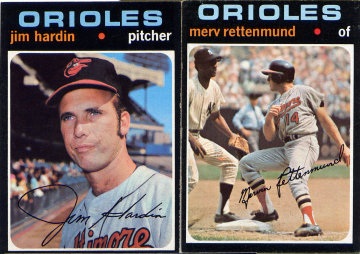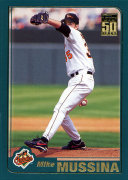AJ Burnett is like a golfer who shoots good scores, but has two or three bad holes per round that sully the scorecard. Friday night’s start was indicative of just that. Burnett, for the most part, was solid against a Baltimore Orioles lineup that has some punch. He pitched eight innings, struck out a season-high 10 batters, and walked only two. He ended five of the eight innings with strikeouts. That was the good. The bad: five poor at-bats led to four runs.
In the second inning, Burnett walked Derrek Lee with one out, and then left a fastball on the outer half to Mark Reynolds, who launched it over the right-center field fence into the Yankees’ bullpen. The same part of the order bit him in the fourth inning. Consecutive doubles by Vladimir Guerrero and Lee made it 3-0. In the sixth, Lee victimized Burnett yet again, this time with a home run to right-center. That blast completed the Orioles’ scoring.
Overall, Burnett’s night was the equivalent of shooting 74 or 75, with five or six birdies, but a bunch of bogeys submarining what could have been a fantastic round.
Paul O’Neill summed up Burnett’s night perfectly during the top of the ninth inning on the YES telecast: “AJ Burnett didn’t make too many mistakes tonight — far fewer than in his last game — but the mistakes he did make ended up going for home runs and doubles.”
The loss left Burnett winless in July. It is the third winless month in his Yankees career. How goofy of a season has this been for Burnett? Friday marked the third time this season that he’s pitched into the eighth inning. The Yankees have lost each of those games, and Burnett has been the pitcher of record.
The burden of the 4-2 defeat should not fall squarely on Burnett, though. It was the type of game that if the vaunted Yankees offense did anything to support him, the outcome would have been different. Jeremy Guthrie, a pitcher the Yankees have owned over the last two years, turned the tables and was in complete control. Of the 69 strikes Guthrie threw, 19 were called strikes and 21 were foul balls. He had mid-90s velocity on his fastball with good movement, and he changed speeds effectively to keep the big bats off balance.
Watching the game, the telltale sign that it would not be the Yankees’ night was that the second and third time through the order, usually when they make minced meat of pitchers like Guthrie, the grinding at-bats the Yankees are known for didn’t yield positive outcomes — Mark Teixeira’s solo home run in the sixth inning notwithstanding. When they did put runners on base, Guthrie made a pitch to get the Yankees out. They were 1-for-9 with runners in scoring position; a common refrain when analyzing Yankees losses over the course of this season.
A ninth-inning rally against Kevin Gregg fell short when Brett Gardner, who swung through nearly every hittable pitch that came his way in previous at-bats, capped an 0-for-5 performance by striking out swinging to end the game. The key pitch in the at-bat was the fastball Gregg threw with the count at 3-and-1. Gardner thought it was outside for ball four. Gardner turned toward first base and was three steps up the line when home plate umpire Mike Dimuro called the pitch a strike and ushered Gardner back the batter’s box. Replays confirmed the pitch was off the plate by a few inches, but it was too close to take.
Following the whiff, Gardner slammed his bat on the ground in frustration, cracking it in half. Given that the Red Sox lost to the White Sox and another chance to cut into the 2 1/2-game deficit was wasted, they should be frustrated.







